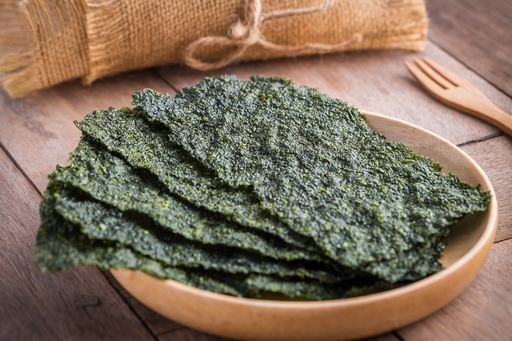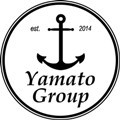Dried seaweed, often sold as nori or kelp, is a common addition to Japanese dishes, including sushi. This food often imparts a briny flavor and a crisp texture. Look for it in specialty shops, although some grocery stores sell it in thin, square sheets for use in recipes. Dried seaweed is good for you when eaten in moderation — it contains many vitamins and minerals, but is quite high in sodium and iodine.


Seaweed or sea vegetables are forms of algae that grow in the sea. They’re a food source for ocean life and range in color from red to green to brown to black. Seaweed grows along rocky shorelines around the world, but it’s most commonly eaten in Asian countries such as Japan, Korea and China. It’s extremely versatile and can be used in many dishes, including sushi rolls, soups and stews, salads, supplements and smoothies.
Including dried seaweed in your diet gives you access to a good supply of vitamin B-6, with 30% of the amount you need each day in a serving; this vitamin is critical for brain health and function. This food also provides 22% of the potassium and 17% of the iron your body requires daily. You also take in lesser amounts of calcium, magnesium, phosphorus, zinc, copper, vitamin A, thiamin, riboflavin, vitamin E, niacin and vitamin B-12.
